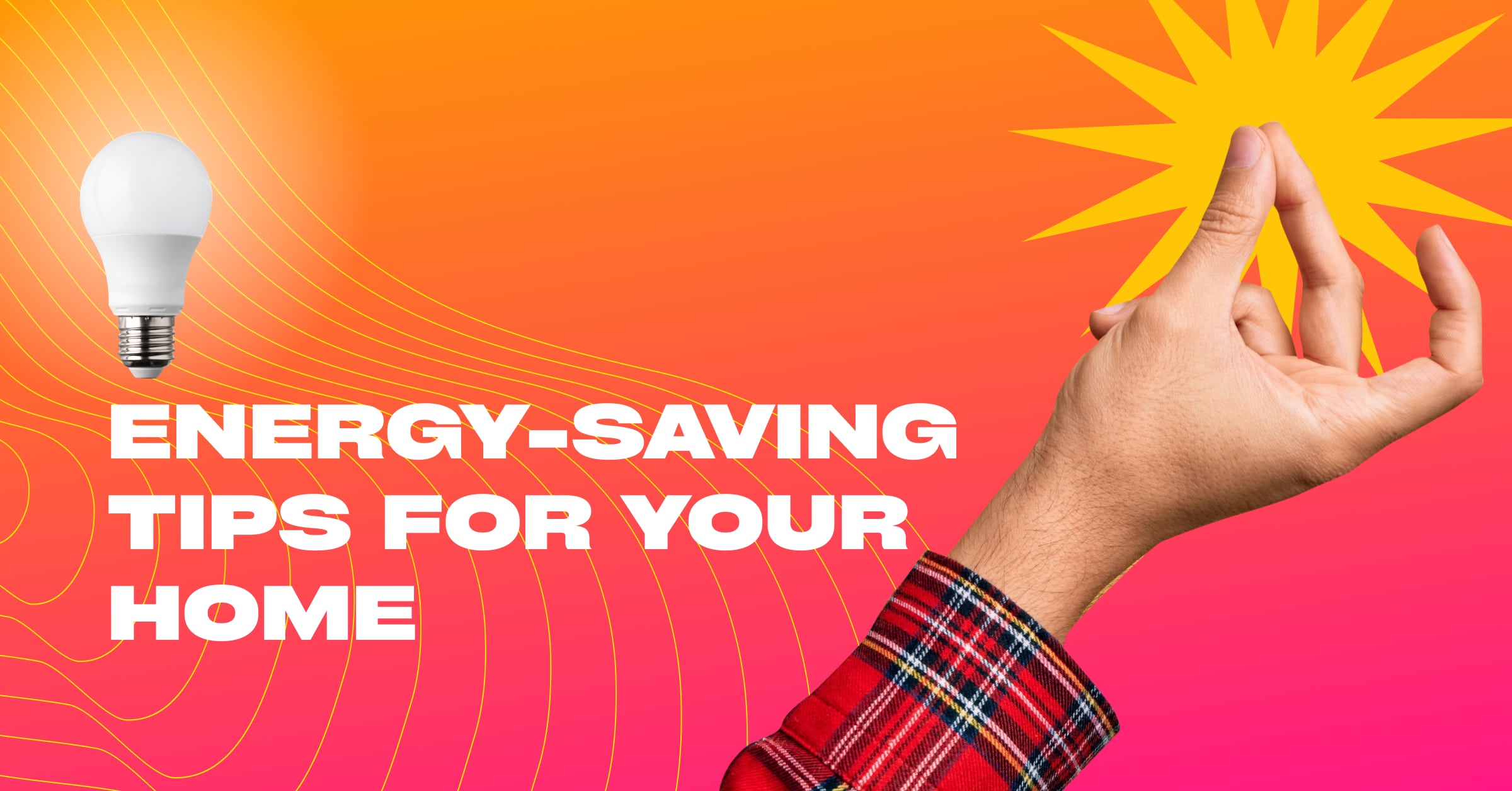Why you need to save energy at home
The following doesn’t make for very cheerful reading, but it’s also difficult to ignore.
According to the World Bank Blog, ‘Energy prices are expected to increase by 50% on average in 2022. Coal prices, natural gas prices, and crude oil prices are projected to increase by 81%, 74% […], and 42% respectively…
I could go on, but I won’t.
Reduce energy consumption
The message is clear, energy is expensive, it’s going to get more expensive, and it’s going to stay expensive for quite some time.
Because of these depressing statistics, we all need to do our bit to save energy at home for the sake of our finances, and the sake of the planet.
Let’s look at what we can do at home to save energy – and money – with small, but easy steps in the right direction.
Save on energy and get rewarded
Get the best deals and be rewarded for purchasing energy saving appliances. Exchange your rewards to gift cards or cryptocurrency!
Some easy energy saving tips
Saving energy shouldn’t be a difficult thing to do. It’s just a matter of making some changes to your old habits.
The first course of action for anyone wanting to save money on energy bills is to install a smart meter. A smart meter will give you the information you need to make the changes that save you money.
Sure, it might cost you money to install some of the devices we mention, or even to make some of the changes we recommend, but if it saves you money in the long run, we think it’s worth it.
Let’s get started.

Are light bulbs burning your bank balance?
Turn off the lights in a room when you’re not using it.
Yes, I know, it’s obvious, but if we’re totally honest with ourselves we probably don’t practice this as much as we should.
But when you do the maths you’ll soon see that turning off lights in unused rooms can be a significant part of your yearly energy bill savings.
According to an online energy rating website, the average four person household has about 40 light bulbs. This can account for up to 20 percent of your total yearly electricity bills.
Of course, this can vary wildly depending on the type of light bulbs you use.
Here’s a rough example:
- Incandescent Bulbs: Using 10 incandescent bulbs for one hour per day can add £25 to your energy bills annually.
- Halogen Bulbs: The same exercise for halogen light adds approximately £18 annually.
- CFL: 10 CFLs will cost £6.
- LEDs: LEDs are the most cost effective light bulb choice, adding less than £5 to your energy bills per annum.
To save energy you’ll probably have to splash out a little money. But don’t worry, you know that your energy bills will thank you for it in the long-run. One way of getting extra returns from any purchases you have to make is by downloading the Monetha rewards app and shopping with Monetha’s online store partners. Every time you shop you’ll earn points that can be exchanged for great rewards like gift cards from some of the world’s top brands, invest in cryptocurrency, or use the points to donate to a charity of your choice.
That’s how you can save energy and get rewarded at the same time – feels good, right?
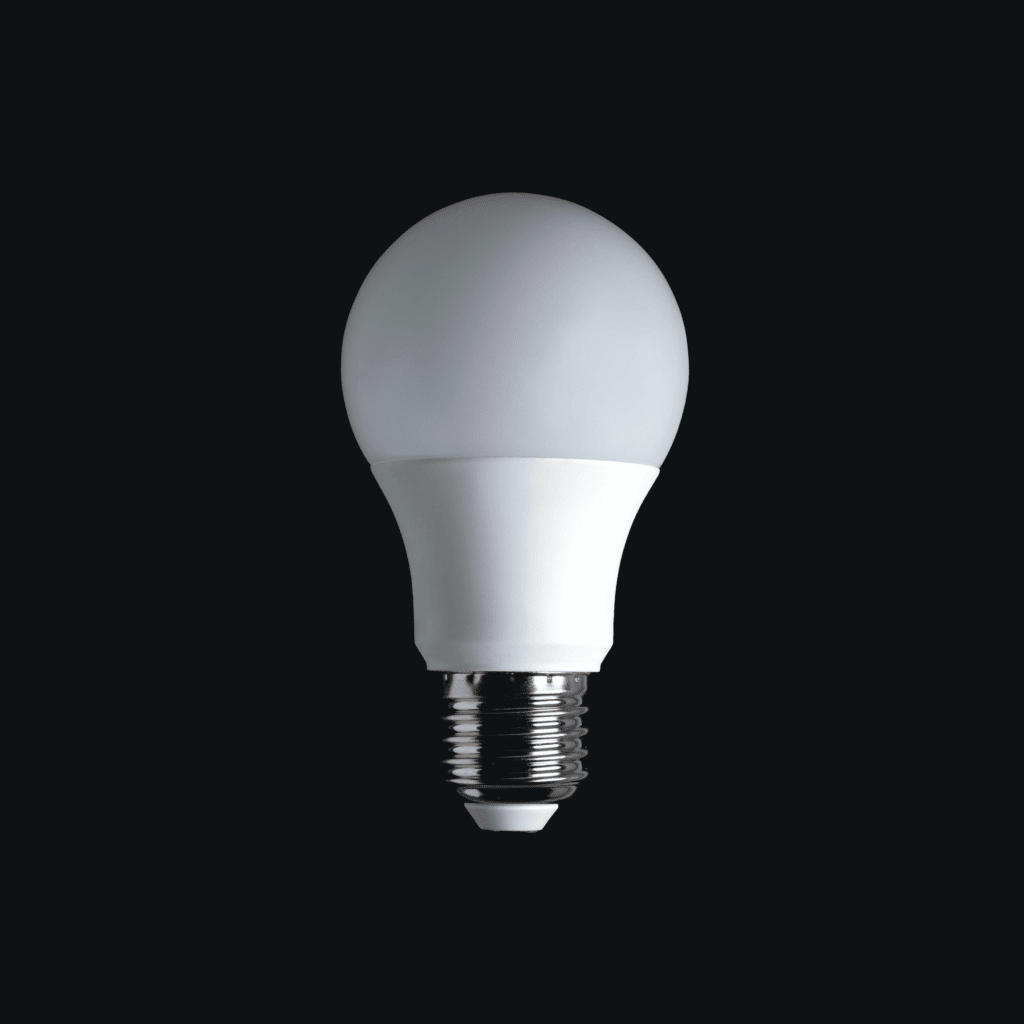
Get the LED out
One easy way to reduce energy usage is to replace your old light bulbs with energy saving LED bulbs.
LED (light emitting diode) bulbs are 90% more energy efficient than incandescent light bulbs.
The principle behind LEDs is quite simple. A current is passed through a microchip that in turn activates LEDs which results in visible light. All of the heat produced by LEDs is absorbed by an in-built heat sink.
In the past, the life span of incandescent bulbs was determined by when the bulb’s filament ‘burned out’. LEDs don’t ‘burn out’ they eventually experience ‘lumen depreciation’ – luminosity output decreases by 30%.
LEDs are quickly becoming the preferred lighting choice for the average UK household using less energy and lasting substantially longer than conventional bulbs.
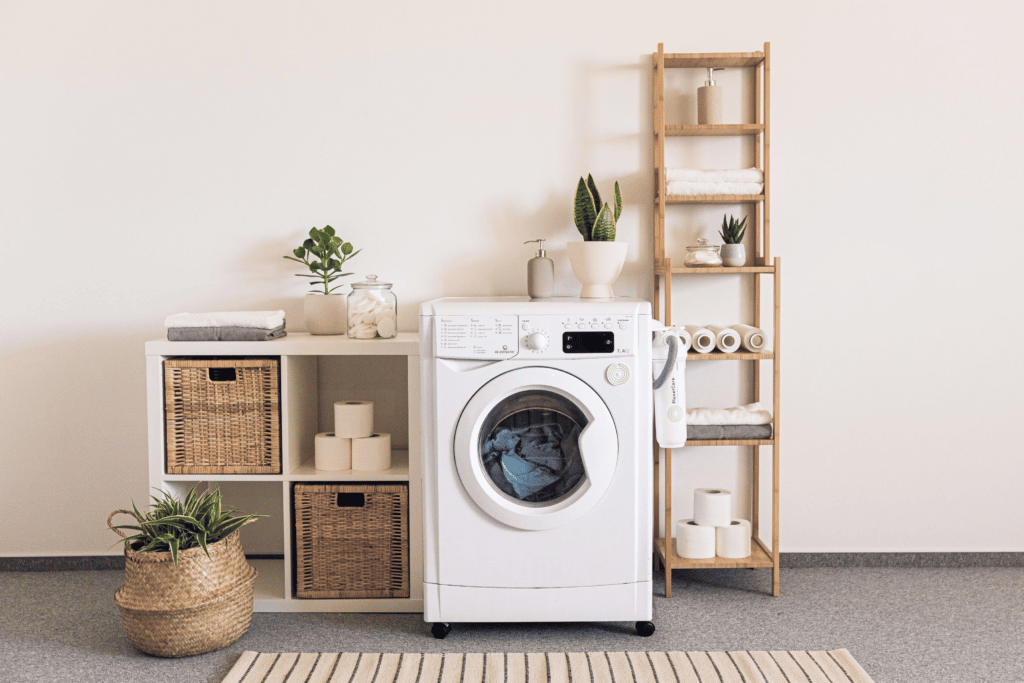
Switch to energy efficient appliances
Top of the energy saving tips parade is to switch to energy efficient appliances.
But, what are energy efficient appliances?
To put it very simply, energy efficient home appliances are appliances that have been minutely designed to save energy at home, at work, and in public places.
We’re talking about your coffee maker, washing machine, tumble dryer, heating system, gas hob, light bulbs, printers, laptops, public lighting, and anything that contributes to decreasing energy bills and protecting the planet.
Improved energy efficiency is key to making savings in the home. But where do you find these energy saving devices?
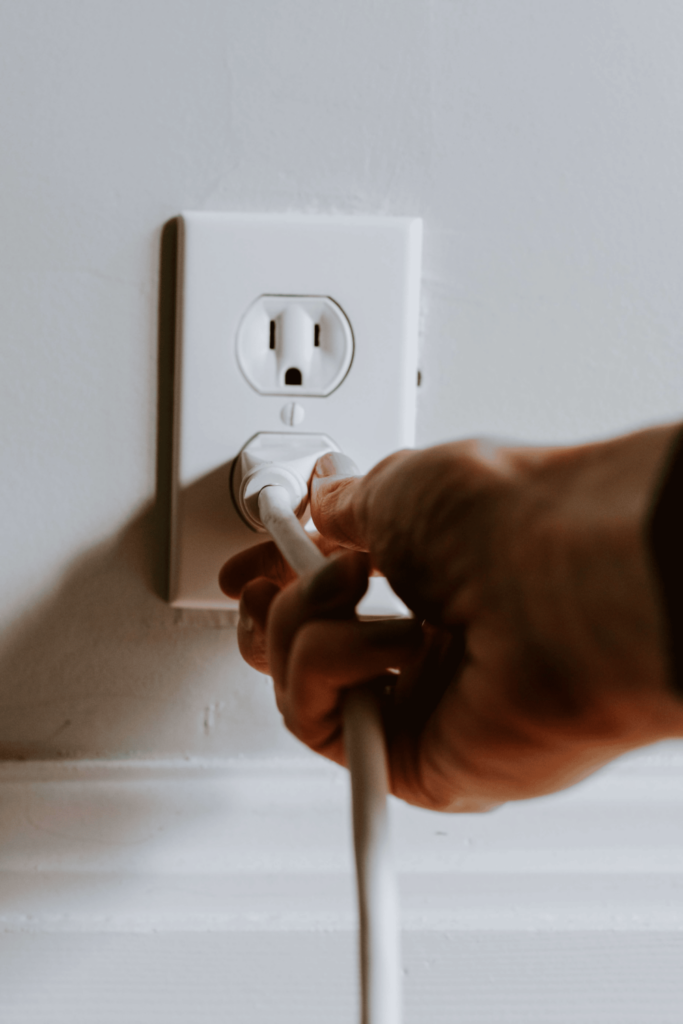
Turn off devices on standby
How would you like to save an additional £55, or more, a year on your energy bills? And what’s more, it couldn’t be easier.
Take a tour of your house, flat, or apartment, and turn off all electric appliances that are not in use or idling on standby.
Of course, some appliances like fridges and freezers have to remain plugged in at all times to function as designed. But other appliance items like TVs, games consoles, laptops, smart speakers, and smartphones use what’s known as ‘Phantom Load’ when they’re in standby mode.
It’s estimated that the entire UK could be collectively wasting as much as £4 billion per year on Phantom Load energy.
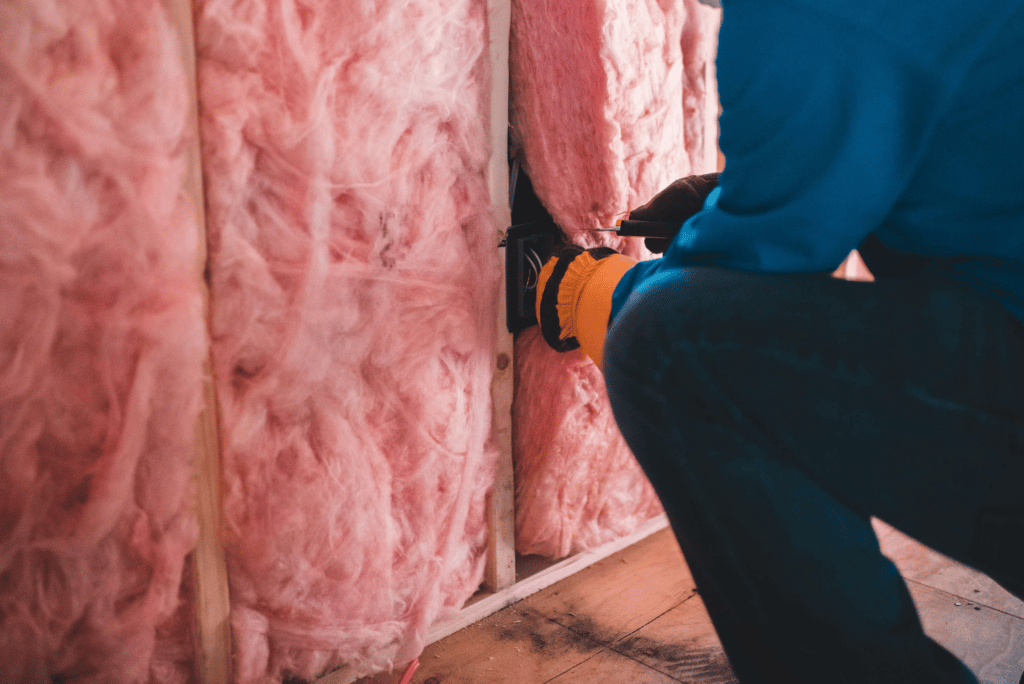
Insulate your home and save energy
Insulating your home is one of the smartest ways of saving energy.
Insulation can be as simple as installing foam tape on the windows and door frames or as complicated as applying fibre-glass attic insulation, polystyrene cavity block insulation, and even under-floor insulation.
But whatever you do, no matter how simple or how complicated it is, insulation will save you money, and quite a lot of money.
According to the Energy Saving Trust, almost a quarter, or even more, of your home’s heating may be lost through poorly insulated ceilings, attics, loft access doors, fireplaces, door and window frames, and even hot water pipes.
That all adds up to a lot of money going down the drain. What’s the point in having a top-of-the-range heating system if you can’t prevent heat loss?
A properly insulated home can mean savings of as much as £700 per year.
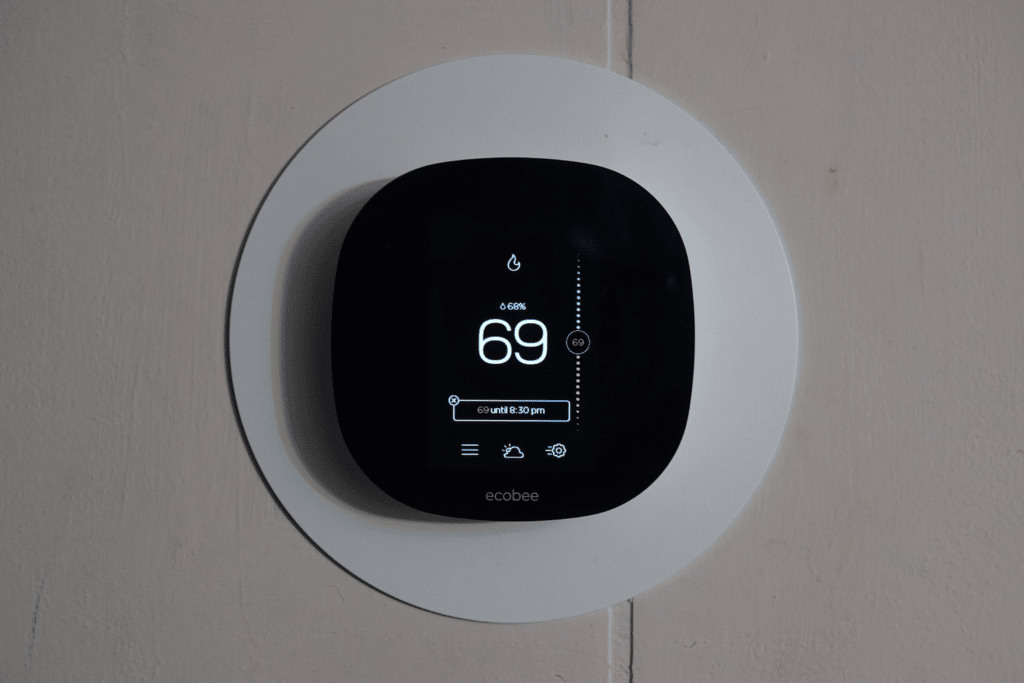
Turn down your thermostat
This is one of the most straightforward energy saving tips there is. By turning down your heating system’s thermostat by just one degree you can expect to cut your heating bills by about 4-6%.
In fact, that figure goes for every additional degree you reduce the temperature of your thermostat.
Reducing the heat might save you money, but there’s no guarantee that the rest of the household will be so happy about it.
Save on energy and get rewarded
Get the best deals and be rewarded for purchasing energy saving appliances. Exchange your rewards to gift cards or cryptocurrency!
If you’re a healthy adult, 18 degrees is the home temperature recommended by the WHO (World Health Organisation). That temperature should be slightly higher for the elderly and young children.
Plus, according to the Energy Saving Trust, you should only have your heating on when it’s really needed.
If you’re feeling a little chilly, there’s always that duck-pattern wool jumper your grandmother gave you for Christmas. Just because you’ve never been brave enough to wear it down the pub, doesn’t mean it won’t keep you nice and warm on an evening at home with the thermostat turned down.

Reduce hot water usage
It takes energy to heat water, whether a kettle, a washing machine, or a shower, they’re all costing you money. In fact, water heating accounts for approximately 20% of your household’s energy consumption.
But some simple tips and tricks can help you reduce heat loss and water consumption throughout the whole household.
- If you have a hot water cylinder make sure that it’s insulated and properly lagged.A cylinder jacket or wrap can save you as much as 1kWh per day – for older cylinders – or approximately £100 per year. Newer models are much better designed to retain heat.
- To save water usage when you shower you can do two things; install a water efficient shower head, and take shorter showers.
- Even reducing shower time by one minute for each household member can reduce your energy use by about 2%.
- When it comes to washing clothes try to make sure you only do a wash when you have a full load of laundry. Also, if you can reduce your number of laundry washes by one less load per week that can make for additional savings over an entire year.
- It might sound simple, but don’t overfill the kettle when you want a quick cuppa. No point in wasting money heating water that you won’t use.
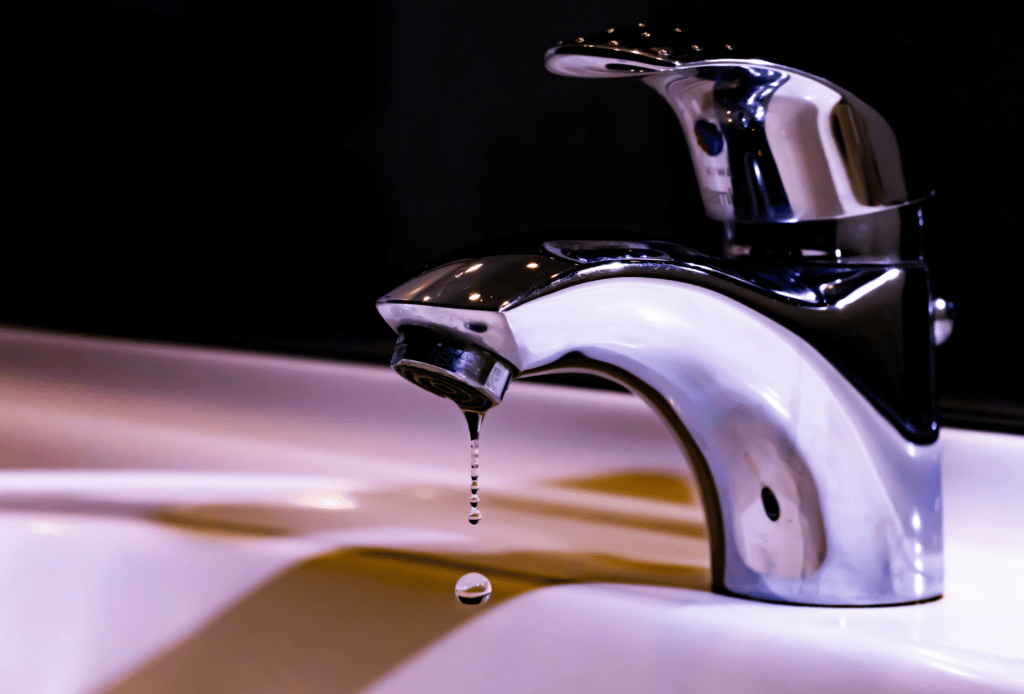
Check how much water you’re using
If you want to be sure of how much water you’re using, you could install a water meter and measure your usage from week to week or from season to season. Once you have the knowledge you can make the changes you need to reduce your energy bills.
Top tip – Check with your local authority to see if they provide a free water meter service.

Double glaze your windows
There’s not much point in having a central heating system working overtime only for the heat to escape through drafty windows. Depending on your home’s construction, about 15-25% of heat is lost through the windows of a non-energy-efficient house.
Not only do double glazed windows help save on energy bills, but they also reduce harmful greenhouse gases emanating from your heating system and exiting the house.
Double glazed homes are warmer in winter as less heat is radiated and more draughts are excluded. In summer, the extra layer of glass reduces heat radiated by the sun.
In this day and age, every home should be fitted with double-glazed windows at the very least.
Check with your municipality, grants may be available for double glazing installation and other energy saving initiatives.

Install a smart meter
Smart meters are the latest technological advance in measuring gas and electricity usage in households.
They give real-time information on how much energy you’re using in pounds and pence. As part of a government incentive, smart meters are being rolled out across the UK (and across Europe) in an attempt to achieve zero emissions by 2050 (However, installation is non-compulsory).
Smart meters mean you’ll never have to pay for an energy ‘estimate’ again, the meter sends information directly to the energy providers via wi-fi or wireless phone signals.
Because you have information about all your energy use you can learn to manage it far better and save even more money. You can do this by switching to cheaper tariffs when you use the most energy, or by understanding when you do and don’t need heating.
Smart meters are perfect for people using prepaid meters as they show the actual credit balance and reduce the risk of sudden power outages due to lack of credit.
What about the cost of smart meters?
Never fear, smart meters are installed at no charge to the homeowner and the In-Home Display (IHD) also comes at no extra charge.
In fact, installing a smart meter will probably SAVE you money in the long run.
Save on energy and get rewarded
Get the best deals and be rewarded for purchasing energy saving appliances. Exchange your rewards to gift cards or cryptocurrency!
Conclusion
It seems like the cost of energy is only going to keep going in one direction – up.
Additionally, the reaction to global warming will see outdated energy usage practices costing more and more.
In order to save money and play our part in protecting the planet, every one of us must be willing to adapt to new ways of thinking about energy use.
The initial outlay for new technology that will make us more energy efficient might be expensive initially, but the long-term savings will be worth it.
If you want to assuage the costs, try signing up for a cashback programme like Monetha and you’ll be sure of receiving rewards in return for your outlay.
Monetha has teamed up with hundreds of online shops to bring you better value, and more discounts. When you shop for energy solutions using the Monetha app, you earn points that can be redeemed for a huge selection of money-saving gift cards from some of the world’s top brands. Or you can convert your points to invest in cryptocurrency, or use them to make a selfless donation to the charity of your choice.

Other ways to save energy at home
We’ve already outlined some of the top ways you can actively save energy in the home. But there are lots more imaginative ways you can help.
Just look around your home, observe how you do things, and discover where you can make changes for the better. Every tiny saving you make will add up to bringing you greater rewards in your bank account and in your attitude toward the environment.
- Install solar panels on your roof or in your garden
- Avoid using a tumble dryer
- Take a shower instead of a bath
- Cook with the lid on your pots
- Fill your dishwasher before using it
- Use your microwave instead of an oven
- Use natural light if you can
- Block unused fireplaces to save heat loss
- Keep refrigerators and freezers full – use full plastic water bottles if you have to
- Use washing machines and dishwashers at night for lower energy rates
- Don’t leave bathroom ventilators on for longer than necessary
- Unplug your mobile phone overnight
- Dress for the weather at home – wear an extra sweater if you have to
Saving energy will save you money, but by doing so, you will also be part of a global solution to protecting our environment.
Save on energy and get rewarded
Get the best deals and be rewarded for purchasing energy saving appliances. Exchange your rewards to gift cards or cryptocurrency!
